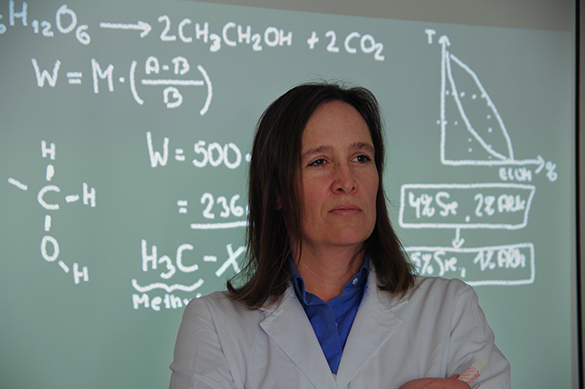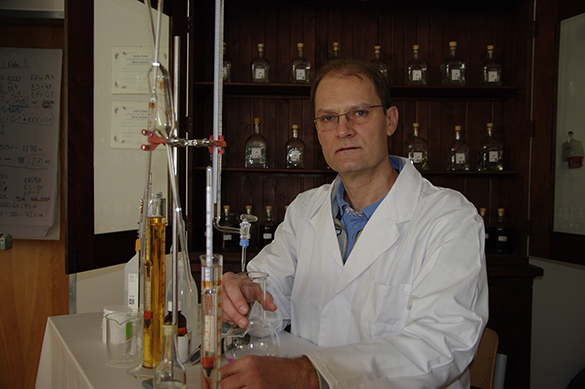

Bettina Malle and Helge Schmickl graduated from the Vienna University of Technology in 1991 with a master of science in chemical engineering and received doctorates in technical sciences in 1993. Each earned a bachelor of business administration degree from the Graduate School of Business Administration Zurich while designing, engineering, and commissioning industrial plants and managing research and development projects. Thereafter they worked as technical and business consultants until 1998.
Malle and Schmickl believe it should be possible for everyone to produce exquisite spirits with fruit and herbs right from the garden. In 1998, they developed their first still, designed to maximize the flavor of alcoholic distillates. That same year, they launched their first webpage and online store and began to host small-scale distilling workshops. They published the results and conclusions of their experiments as well as detailed instructions and many recipes for crafting distilled spirits in their 2003 book Schnapsbrennen als Hobby (The Artisan’s Guide to Crafting Distilled Spirits). It became the standard reference book for home distillers in German-spoken countries and is now in its eleventh Edition.
In the meantime they designed and constructed an optimized still for producing essential oils and hydrosols on a small scale. Due to its special designed condenser and adapted shape, the still makes it possible to obtain plenty of oil and intense hydrosols with only small amounts of base material. The two have hosted essential oil workshops and an online store since 2002 and published the reference book Ätherische Öle selbst herstellen (The Essential Oils Maker’s Handbook) in 2005. The book is now in its sixth edition, and Malle and Schmickl’s still is the preferred device among small-scale users in the fields of phyto-aromatherapy and herbology throughout the German-speaking region. It is widely used in many other courses, workshops, and seminaries as well as in research institutes, universities, colleges, and other educational Services.
In 2008 Schmickl and Malle engineered and constructed a small-scale, modified vinegar generator that is a fixed-bed reactor with immobilized vinegar bacteria. The construction enables the use of miscellaneous packing materials, especially fruit, herbs, and spices, to improve or change the taste of the resulting vinegar. Additionally they developed a method to analyze the residual alcohol content in vinegar, which is simple, cheap, and accurate enough to determine a concentration of 0.1 percent. Their book Essig herstellen als Hobby (The Artisanal Vinegar Maker’s Handbook) was published in 2010, they have hosted vinegar workshops and their vinegar webpage with online store since 2011.
Bettina and Helge have been married since 2002. That same year they moved to Klagenfurt, Carinthia (Austria), where they host their seminars and conduct research and developments in fermenting and distilling. They have two children.
